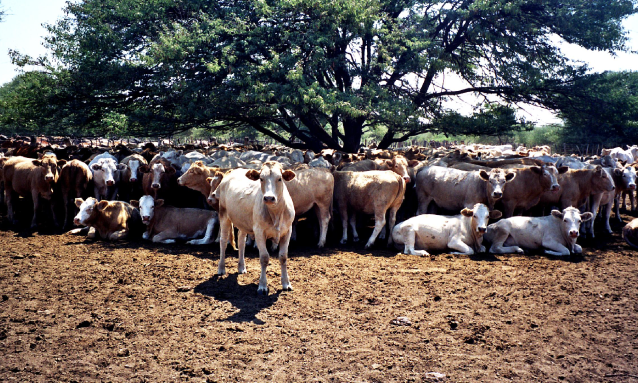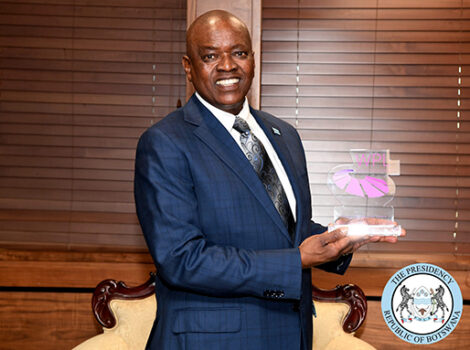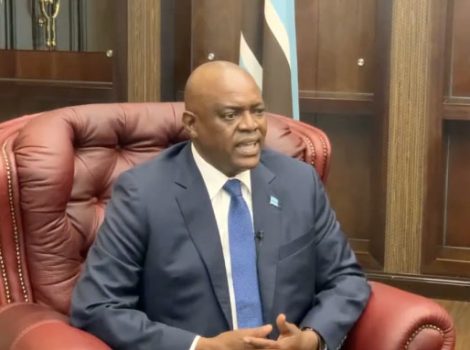
29 August 2023
Experts explore mutual solutions for stronger agriculture, natural resource value chains
The leadership of Texas A&M AgriLife Research visited the Republic of Botswana for a week of discussions with the country’s president, His Excellency Dr. Mokgweetsi E.K. Masisi, and several of the country’s ministries about solutions of mutual benefit to agriculture and natural resource sectors within the African country and in Texas.
The AgriLife Research visit was a follow-up to a memorandum of understanding with Botswana and included experts from the Texas A&M College of Agriculture and Life Sciences Department of Animal Science, Department of Horticultural Sciences and Department of Agricultural Economics.
The five-day trip included visits to several production sites, labs and livestock operations as well as meetings with Botswana’s Ministers of Agriculture, Education and Entrepreneurship. The AgriLife Research team also met with Botswana’s National Agricultural and Technology Advisory Board.
G. Cliff Lamb, Ph.D., director of AgriLife Research, delivered a keynote speech to open Botswana’s National Agricultural Show on Aug. 25, where he reviewed current conditions in Botswana and some of the anticipated benefits of the collaboration with AgriLife Research. The show’s theme was “enhancing agricultural productivity through utilisation of advanced technologies.”
Research leaders expect the collaboration between Botswana and AgriLife Research to produce advances around several priorities. A primary goal will be the bolstering of One Health — the global initiative to optimise the interconnected health of humans, plants, animals and the environment.
“We also plan to make meaningful strides together in agricultural innovation, crop phenotyping, adoption of climate smart practices, animal reproductive technology and animal performance,” Lamb said.
“There is much to learn and share as we work together to build up Botswana’s agriculture and natural resources sectors.”
Agriculture in Botswana
Agriculture’s contribution to Botswana’s gross domestic product has fallen from 40% in 1966 to 2.2% today. Government officials cited low adoption of modern technology, erratic rainfall, frequent drought and inadequate investment in research, development and innovation as contributors to the decline.
The country’s livestock sector is a major focal point in its collaboration with AgriLife Research.
“With livestock comprising the largest agricultural commodity in Texas by far, there will be significant opportunities for us to share the vast expertise of Texas A&M and to takeaway new insights that are applicable to our production systems in the U.S.,” Lamb said.
“I am here to say that with the collaboration of the United States of America, particularly companies there, we are making headway in bringing on board the best skills in the world to match where the best beef in the world comes from,” Masisi said.
Next steps: Plans of action
Botswana and AgriLife Research aim to build on existing and upcoming Botswana government programmes designed to boost production and incomes for small and micro farms while fostering innovation and technology adoption. AgriLife Research initiatives in the country will dovetail with these programs.
While receiving a shipment of livestock from the U.S., Masisi remarked on benefits to the country’s plans for upgrading Botswana’s Ramatlabama National Artificial Insemination Laboratory.
“We are not just importing top genetics,” he said. “We are going to import skills to ensure that the envisioned objectives of the Ramatlabama Laboratory upgrade are achieved.”
As a result of their visit to Botswana, Texas A&M University faculty will return with insights on opportunities and challenges faced by the agricultural industry in the country.
“Our goal is to bring back as many ideas as possible to share with the broader faculty of Texas A&M in designing specific research programming to the mutual benefit of Texas, the U.S. and the Republic of Botswana,” Lamb said.



